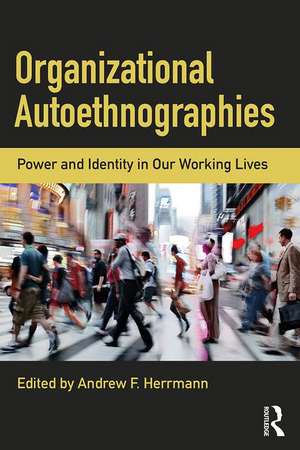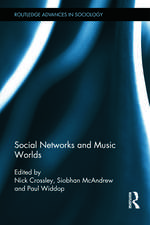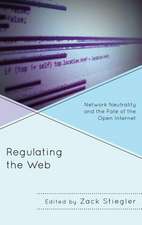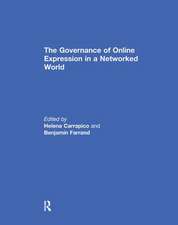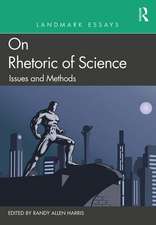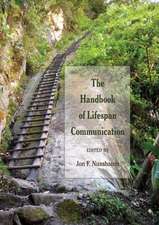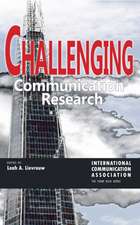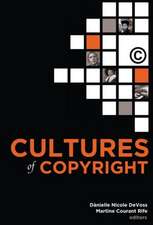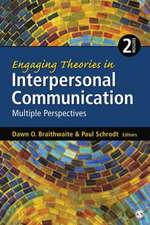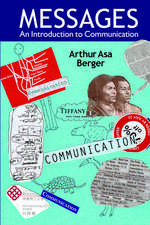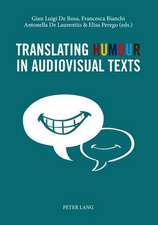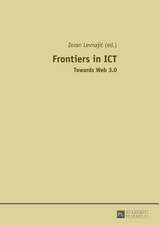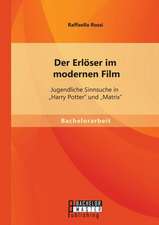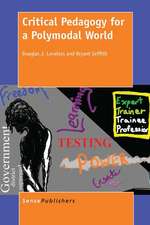Organizational Autoethnographies: Power and Identity in Our Working Lives
Autor Andrew Herrmannen Limba Engleză Paperback – 26 mai 2017
Preț: 348.77 lei
Nou
Puncte Express: 523
Preț estimativ în valută:
66.74€ • 69.87$ • 55.22£
66.74€ • 69.87$ • 55.22£
Carte tipărită la comandă
Livrare economică 05-19 aprilie
Preluare comenzi: 021 569.72.76
Specificații
ISBN-13: 9781138231689
ISBN-10: 1138231681
Pagini: 184
Dimensiuni: 156 x 234 x 10 mm
Greutate: 0.27 kg
Ediția:1
Editura: Taylor & Francis
Colecția Routledge
Locul publicării:Oxford, United Kingdom
ISBN-10: 1138231681
Pagini: 184
Dimensiuni: 156 x 234 x 10 mm
Greutate: 0.27 kg
Ediția:1
Editura: Taylor & Francis
Colecția Routledge
Locul publicării:Oxford, United Kingdom
Cuprins
Foreward
Tony E. Adams
Acknowledgements
List of Contributors
Introduction: An Autoethnography of an Organizational Autoethnography Book
Andrew F. Herrmann
Power, Emotional Labor, and Intersectional Identity at Work: I Would not Kiss my Boss but I Did not Speak Up
Katherine J. Denker
Stroking my Rifle like the Body of a Woman: A Woman’s Socialization into the U.S. Army
Jeni Hunniecutt
Working on It: Family Narratives of Masculinity, Disability, and Work-Life Balance
Kurt Lindemann
Dolly, Ellie May, and Me: My Southern Appalachian Working Identity
Annalee Tull
Sensemaking in the Dialysis Clinic
Bernard J. Brommel
How Rainbow Gatherings Work: (Dis)organization in Small Acts
Kristen C. Blinne and Tenali Hrenak
Good Ol’ Boys and Their Analog Networks
Alix R. Watson
Broken Promises: Psychological Contract Breach, Organizational Exit, and Occupational Change
Andrew F. Herrmann
Tony E. Adams
Acknowledgements
List of Contributors
Introduction: An Autoethnography of an Organizational Autoethnography Book
Andrew F. Herrmann
Power, Emotional Labor, and Intersectional Identity at Work: I Would not Kiss my Boss but I Did not Speak Up
Katherine J. Denker
Stroking my Rifle like the Body of a Woman: A Woman’s Socialization into the U.S. Army
Jeni Hunniecutt
Working on It: Family Narratives of Masculinity, Disability, and Work-Life Balance
Kurt Lindemann
Dolly, Ellie May, and Me: My Southern Appalachian Working Identity
Annalee Tull
Sensemaking in the Dialysis Clinic
Bernard J. Brommel
How Rainbow Gatherings Work: (Dis)organization in Small Acts
Kristen C. Blinne and Tenali Hrenak
Good Ol’ Boys and Their Analog Networks
Alix R. Watson
Broken Promises: Psychological Contract Breach, Organizational Exit, and Occupational Change
Andrew F. Herrmann
Recenzii
"This text paints literary representations of work, the worker and the organisation using a varied palette of autoethnographic inquiry. It is personal, creative, diverse, emotional and powerful. It an essential works for all autoethnographers from the student to the more experienced researcher. An insightful read."
---Dr Clair Doloriert, Bangor Business School, UK
This highly original book provides readers with an intimate understanding of organizational communication. It demonstrates the wonderful possibilities inherent to using autoethnography as a unique way to explore the stories people tell from within diverse contexts of organizational life.
- Dr. Keith Berry, University of South Florida, USA
---Dr Clair Doloriert, Bangor Business School, UK
This highly original book provides readers with an intimate understanding of organizational communication. It demonstrates the wonderful possibilities inherent to using autoethnography as a unique way to explore the stories people tell from within diverse contexts of organizational life.
- Dr. Keith Berry, University of South Florida, USA
Descriere
This text takes a new approach to autoethnography by using personal narratives to analyze our work across multiple disciplines and subdisciplines. These stories feature authors working at the intersections of autoethnography and critical theory within a given organizational context. Organizations are not simply entities, but systems of meaning. As such they are sites of cultural practices and performances, and of domination, resistance and struggle. Working at the intersection of organizational studies and autoethnography, this book explores the ability of autoethnographic and personal narrative approaches to generate important, innovative, and empowering understandings of difference, discourses, and identities, while attending to the various powerful dynamics that are at play in organizations. These are stories of work, at work, and help to finally bring theory and direct exemplars together.
